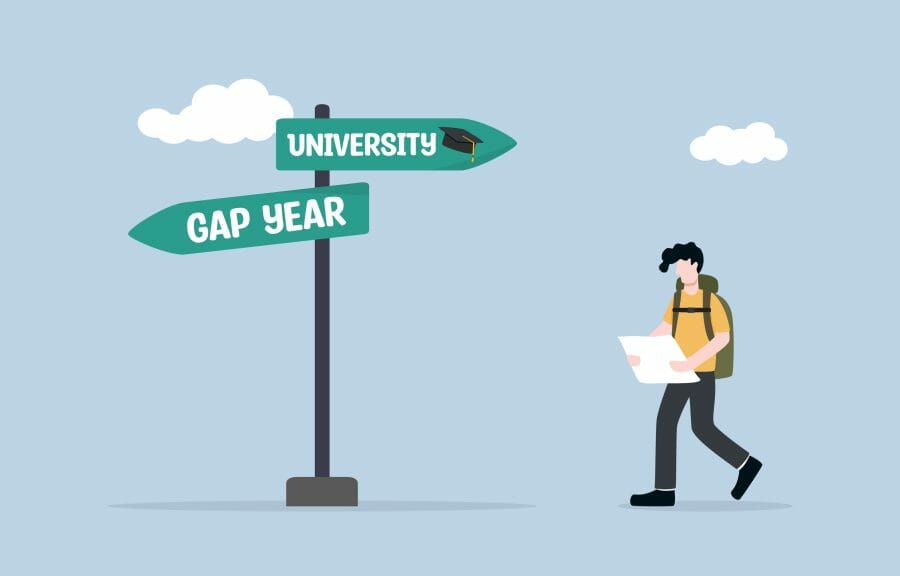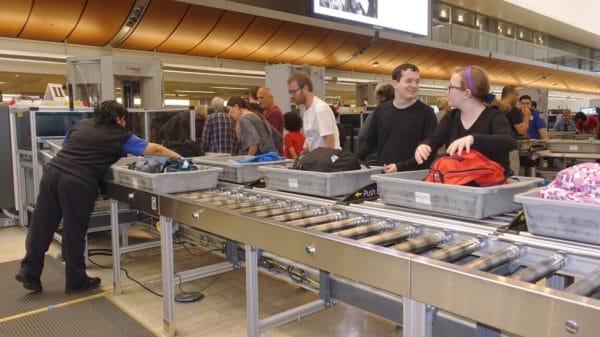School’s out. Summer stretches ahead. But on the other side, looming in autumn, is the nightmarish question of what comes next? Do you follow the crowd flocking to college, or is there another equally (if not more) exciting option you may not have yet considered?
The term gap year simply defines the period in which a student decides to take a break from education, usually between graduating from high school and entering college. A more elaborate description is difficult, as there is no prescribed route this choice will follow.
Despite it being a plunge into the unknown, students remain unfazed. Taking a gap year has grown in popularity, and as we approach the new academic year, it is likely this trend will continue.

Rising Numbers
Studies show that the number of UK students choosing to delay their university entry by a year has risen by 53.1% over the last decade. Similarly, the US Gap Year Association recently asserted that “gap year interest and enrolment is growing substantively”. The way young adults view life after school is shifting globally, but what is the cause of this change?
Covid
As with much of society, the pandemic shed light on new, innovative approaches to education, gap years being no exception. The uncertain times meant many feared universities would not be the same, so they took a year out instead to save disappointment. As a result, there is now an entire cohort that has normalized and advocated this choice, setting an example for future years.
Increasing Stress
Acceptance rates into colleges are reported to be lower than ever. For those who dedicated their high school career to creating the perfect college application, this is a hard pill to swallow. An extra year to focus on yourself and your future may be a tempting remedy to unnecessary stress or even an academic burnout.
Cost of Living
College has never been cheap, but inflation in everyday life has made it a simply impossible expense for some. Time spent working during a gap year may be vital to afford it.
Whatever the cause, the increased popularity has meant going straight to college is no longer the only recognized option. The great effects of gap years are clearer than ever and should be seriously considered.

So What Are The Benefits?
As said by the Gap Year Association, “No two gap years are alike”. Therefore, the list below is by no means exhaustive but should give a good glimpse into some of the opportunity that awaits.
“No two gap years are alike. It is a year of experiential learning in order to deepen one’s practical, professional, and personal awareness.“
The Gap Year Association (GYA), non-profit organization
Freedom
No school, no children, no obligations. Nothing to tie you down. At 18 years old, you are freer than ever. And a gap year only reinforces that.
For the first time in your life, your actions are only governed by one thing: you. Is there a hobby you never got to pick up? Is there a project important to you that you want to volunteer for? Is there a niche academic interest you didn’t have the chance to explore? This is the year to do so, to tick everything off your bucket list.
If this endless list of possibilities feels intimidating, remember that more than anything, you are free from the pressures of deadlines, curfews, and a strict routine. Time is on your side – or a whole year, to be more specific. With careful planning, you can spend different parts of the year focused on different things. And on the slight chance you do run out of time, who’s stopping a second gap year?
Work Experience
Gap year stories tend to focus on the excitement, not the work. However, with over 80% of adolescents working during this period, the important role jobs play should not be overlooked. Whether working as an intern in a high-profile company or part-time in a shop to earn some extra cash, the skills you obtain are valuable.
One example is being adaptable. The workplace is not divided by age or ability (like the classroom), so you may find yourself out of your comfort zone. Learning to communicate with all types of people and in all types of situations will lead to success.
You will also notice a growth in maturity. Earning money may feel great at first, but it’s only useful if it lasts. A sensible approach to budgeting and saving up will be essential to funding any plans you have for the year. This will prove you can provide for yourself, an achievement which is undoubtedly a sign of you entering adulthood.

Self-understanding
Survey results show that the greatest impact felt by gap year takers is in their personal outcomes. 98% agreed that the year out allowed “time for personal reflection”, whilst 97% said it helped them to “develop as a person”.
With little distraction, you have genuine time to focus on prioritizing your wants and needs. Identifying career and study goals. Approaching suppressed mental challenges with care. Picking out what really defines you as a person and what future you want to lead.

Travel
Experience travelling is often the highlight of a gap year – and for good reason! We spoke to Glesni, a student at the British University of Exeter who took a gap year, to find out more:
Most people say they travelled because they don’t know what they wanted to do yet, but I did. I knew my course and my end goal. I guess I just wanted to first try something different to home, where everything was quite regimented. So, the chance not just to visit, but integrate in another country was hard to pass up.
Glesni, student
Glesni spent most of her gap year living in Canada, working as a ski instructor as well as exploring the country. When asked what the best thing about this experience was, she said:
“Meeting so many people from so many countries. Leaving with knowledge of new cultures and friends all over the world!”
Glesni, student
In Conclusion…
Ultimately, each gap year experience is unique to the individual, a choice that can be made for a variety of reasons and that can be used in a variety of ways. Though one thing is for sure – it will be a choice you will not regret.














